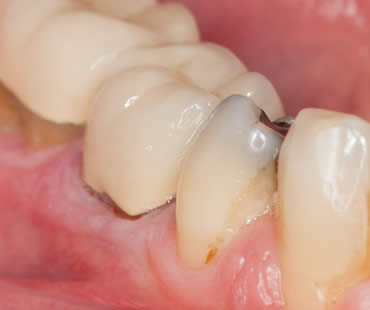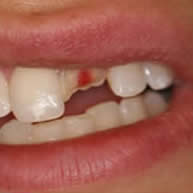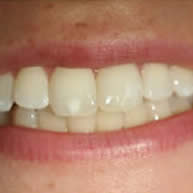Receding gums not only look unattractive, they can harm your health. If you notice that your gums are receding, ask your dentist for help so that you can reverse the problem instead of allowing it to worsen. The goal is to catch gum recession early and get it under control before it turns into periodontal disease.
What exactly is gum recession? It’s the condition in which the outer tissue on a tooth begins to wear away toward the root, leading to exposure of your tooth enamel and eventually your tooth’s root. If untreated, receding gums lead to periodontal disease. The best way to avoid this problem is to prevent it from starting in the first place. This is easily done by performing good oral hygiene techniques. Brush twice a day with a soft toothbrush using a circular motion and mild pressure. Also, floss your teeth every day.
If you see that your gums are starting to recede, it’s likely that practicing better dental hygiene will restore your gum health over time. A deep cleaning by your dentist will help kick-start your hygiene routine at home. In some cases, an even deeper cleaning called root planing may be necessary.
For more advanced cases of gum recession, your dentist may need to take tissue from other areas and use it to cover exposed roots. This can boost your gum tissue and make it healthy again. If you experience pain and increased sensitivity due to exposed roots, your dentist may prescribe medications to help.
The main thing to remember about receding gums is that quick action is important. Good dental care is key in both preventing it and in correcting the problem after it has begun. If you notice that your gums are pulling away from your teeth or experience sensitivity, start the healing process as soon as possible by asking your dentist for treatment advice.
We look forward to seeing you in our Clinton NJ dental office






